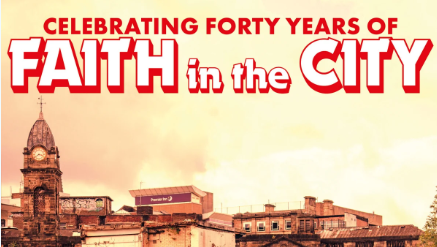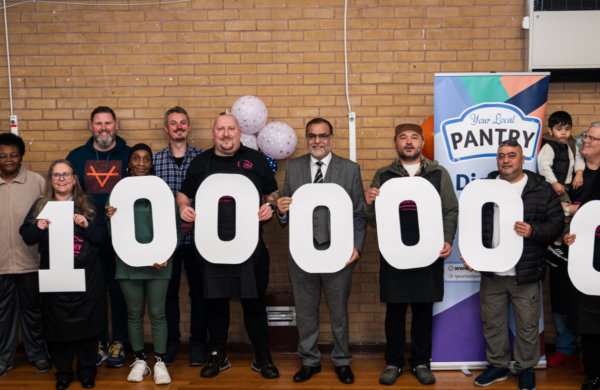Empty Plate Project lets local people be heard
Art can be a brilliant way to engage people in social justice issues - as we see here once again
The Empty Plate Project in Wolverhampton is one of the fantastic art activities that was supported by Let’s End Poverty.
The concept was to invite people to make and decorate a plate, sharing their story of the lived experience of poverty.
Just asking “Could you help me with a free art project?” was all it took for folks to quickly move on, or slow down with curiosity.
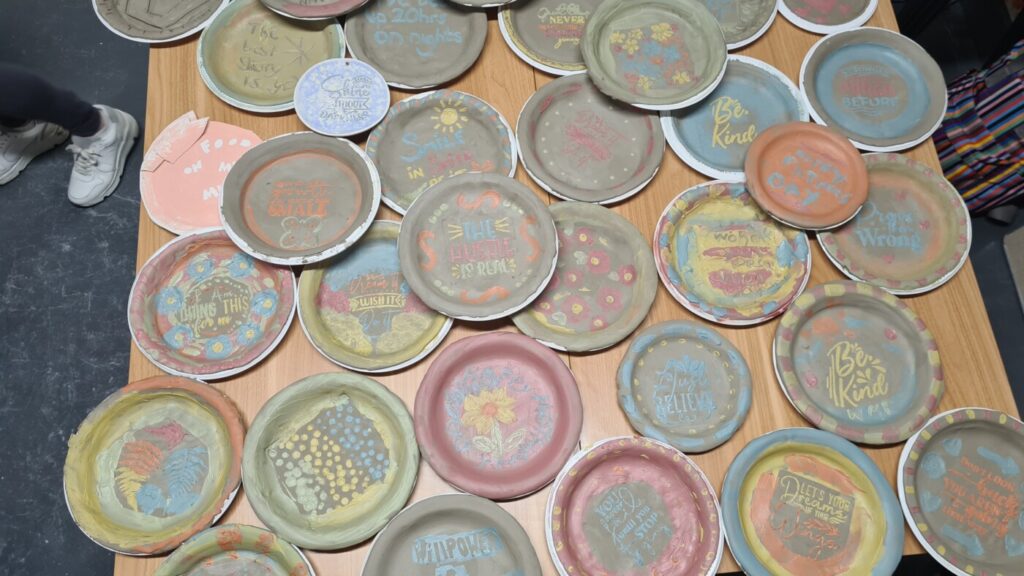
Organisers expected people to be willing and able to speak about the negative impact of poverty – What actually happened was that people wanted to share messages of empowerment and encouragement: that what will be fragile plates hanging in the art installation hold message of resilience.
It’s such an important thing to hear, and organisers from the West Midlands Methodist Circuit say it is so characteristic of the area.
Even when there were stories of pain, bereavement, late diagnosis of neurodiversity, and struggles, this was only ever in the context of hope, community, and beautiful stubbornness to simply keep going.
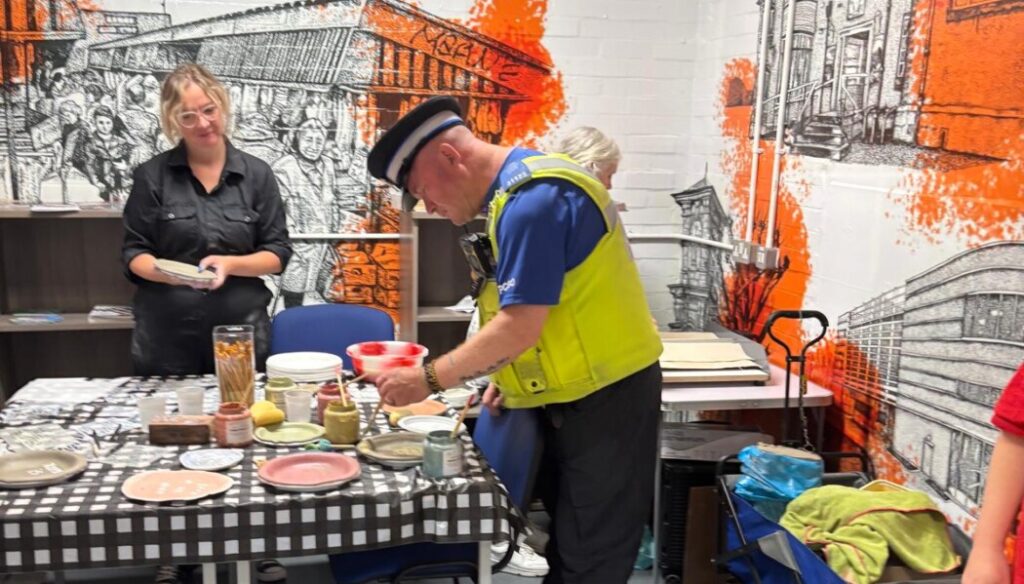
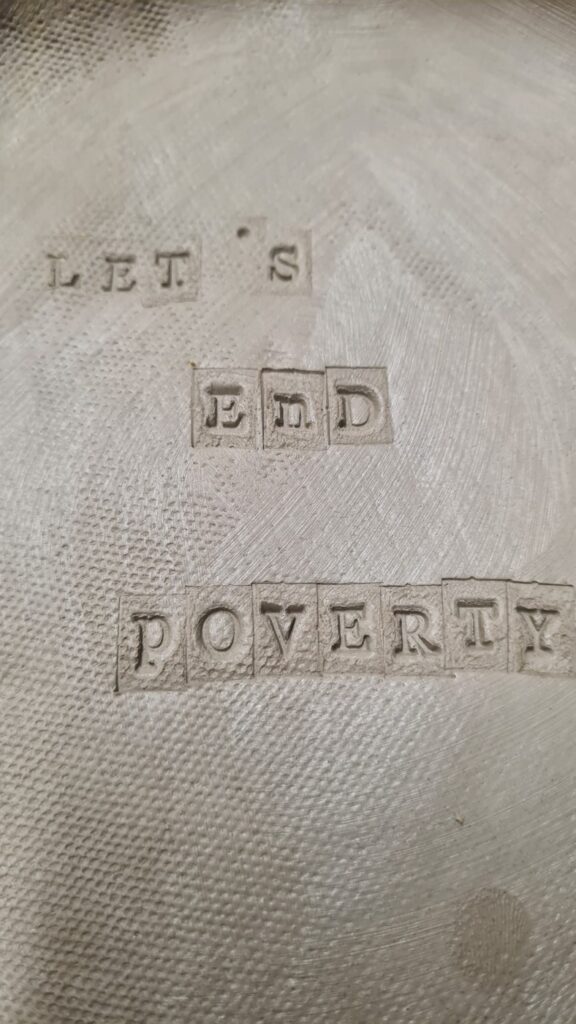
Some walked past because they “didn’t have the time” but dozens of people took the invitation to stop for a while. Those who were persuaded to stop just for a quick moment were often those who chose longer and harder methods for decoration and who stayed for ages!
The clay vessels were then fired so they could form part of a launch installation at the forthcoming Bilston Oasis Project – where work towards a poverty truth commission will find a home.

How should churches address rural poverty?
How is rural poverty changing, and how should churches, dioceses and Government respond? Paul Phillips explores the issue, and reports on his diocese’s work. In …
Faith In The City: why it still matters, 40 years on
In a new book, authors Terry Drummond and Joseph Forde revisit the landmark Faith In The City report, 40 years on. Faith in the City, …
Pantries reach 1 million visits – as new research proves they work
Community breakfast held to mark millionth visit New research shows Pantries improve people’s health, reduce worries and reunite communities Thank you for your amazing support! …
Grief is hard enough: it’s time to improve funeral support
Lindesay Mace from Quaker Social Action outlines their latest work to help people with funeral costs Bereavement can be a deeply challenging experience. In the …
New toolkit: Hosting a regional anti-poverty roundtable
Our new roundtable guide will help churches or dioceses to host productive regional events We’ve published a new resource for churches and dioceses who would …
Review: The Perils of Universal Credit
Ellie Malhotra reviews a new play, a much-needed wake-up call for change that restores power to voices that are too often ignored. Tucked away above …
On poverty and justice: A sermon and prayer for this week
In this guest sermon, John Davies from Liverpool reflects on the parable of the unjust judge and the persistent widow Readings: 2 Timothy 3:14-4:5, Luke …
New: The Autumn 2025 Spark newsletter
Click on the cover image to download the latest issue of our SPARK newsletter, full of stories, ideas and reflections. Download newsletter News Urgent: Ask …
Prayer, care and action: how Christians should respond to injustice
Guest writer Greg Smith shares a personal story of injustice in the care system, and urges churchgoers to demand better from our society. We first …
How should churches address rural poverty?
How is rural poverty changing, and how should churches, dioceses and Government respond? Paul Phillips explores the issue, and reports …
Faith In The City: why it still matters, 40 years on
In a new book, authors Terry Drummond and Joseph Forde revisit the landmark Faith In The City report, 40 years …
Pantries reach 1 million visits – as new research proves they work
Community breakfast held to mark millionth visit New research shows Pantries improve people’s health, reduce worries and reunite communities Thank …


